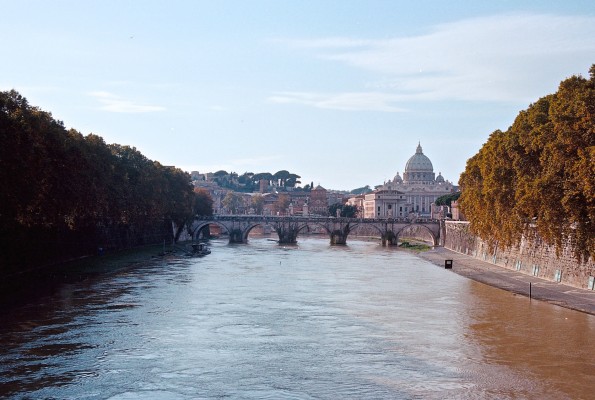Fordham Talks Evolution and Church: They Can Co-Exist
November 20, 2014

(Tessa van Bergen / The Observer)
When Pope Francis gave his address to the Pontifical Academy of Sciences in Vatican City, the media promoted the view that the Pope’s statements were controversial. The Roman Catholic Church, however, has held the beliefs which Francis expounded upon for years and the address was meant to exhort humankind to think of our responsibility to “creation,” according to Lecturer in Philosophy and Mark Burke, S.J.
Dean of Fordham College at Lincoln Center Rev. Robert R. Grimes S.J. said, “I don’t think that the Church sees any inconsistency between Church teaching and the theory of evolution.”
Grimes said, “What we call the Big Bang Theory was first put forth by a scientist who was also a Catholic priest.”
The Pope’s address was given to the Pontifical Academy of Sciences which according to the Vatican which “seeks to pay honour to pure science, wherever it is found, to assure its freedom and to promote its research.”
One of the most discussed parts of the address, the Pope’s, is the Pope’s statement on Genesis. “When we read in Genesis the account of Creation, we risk imagining that God was a magician, with such a magic wand as to be able to do everything,” Francis said.
Francis continued, “However, it was not like that. He created beings and left them to develop according to the internal laws that He gave each one, so that they would develop and reach their fullness.”
The media, such as MSNBC -which published an article whose byline read “Pope Goes Rogue” until it was changed to “Pope Francis: God is not ‘a magician with a magic wand,’” has portrayed his comments as the Church conceding to science and the Pope breaking tradition. Burke holds that, “for Catholics, there is no contradiction between faith and reason.”
According to Burke, the nature of the address was “that God has given us responsibility, moral and religious responsibility, for what we do with creation.” The address was not a theological breakthrough but a speech to inspire scientists.
The Catholic priest and scientist referrenced by Grimes was George Lemaitre, who according to the American Museum of Natural History “argued that the physical universe was initially a single particle—the ‘primeval atom’ as he called it—which disintegrated in an explosion, giving rise to space and time and the expansion of the universe that continues to this day. This idea marked the birth of what we now know as Big Bang cosmology.”
The media when the Pope’s address first occurred mistakenly categorized his comments as a theological breakthrough instead as a speech to Catholic scientists meant to inspire them. The portrayal of the comments forgot to mention the Catholic tradition of scientific inquiry.
The Pope discussed creation and evolution and humankind’s responsibility to creation, specifically scientist’s responsibilities. The media spun Francis’ comments as a doctrine shift, in line with the view of Pope Francis as an iconoclastic and progressive pope, as opposed to a declaration for scientists, as the Pope said, “to carry out that felicitous theoretical and practical initiatives in favor of human beings.”











